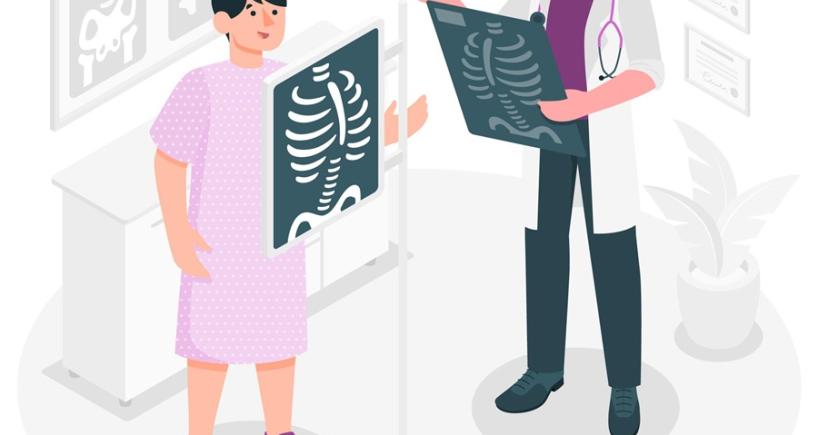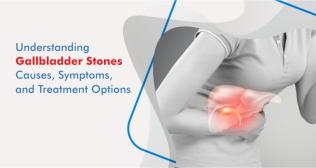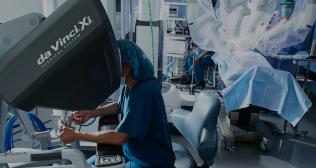
What is Interventional Radiology and its procedure
Introduction
In the realm of interventional radiology most of the imaging techniques utilized are not invasive. In other words, they do not require the insertion of instruments or the injection of liquid into the body. They do not require recovery time and have less risk than invasive procedures that necessitate general anesthesia.
The practice of interventional radiology involves the use of advanced imaging and a variety of instruments for minimally invasive diagnostic and therapeutic intravascular procedures. As healthcare paradigms place an increased emphasis on quality and management of patients in the most cost-effective setting, the role of interventional radiology in pre-procedural planning, diagnosis, and offering minimally invasive treatments demonstrates a significant added value to the healthcare system in general.
Let's delve deeper into it.
Interventional Radiology and its association with imaging
Imaging is one of the significant tools that allows interventional radiologist to visualize or enhance the internal structures, pinpoint the abnormalities and precisely guide their instruments. Whether its navigating blood vessels, organs or tumors these skilled physicians use real-time imaging to ensure safety and accuracy.
Common Procedures in Interventional Radiology
Angioplasty: Using a balloon-tipped catheter, the physician opens blocked areas within blood vessels.
Angiography: An X-ray examination of arteries and veins to detect blockages, narrowing, or other issues.
Embolization: Embolization involves the injection of a substance through a catheter to block a specific vessel's blood flow to control bleeding or to treat any conditions.
Biopsy and Drainage Procedures
Needle Biopsy: The technique is guided by imaging technology, where a small needle is inserted into the targeted or advised body parts to obtain tissue samples for diagnosis.
Gastrostomy Tubes: This procedure involves inserting the feeding tubes straight into the stomach when oral intake is impossible.
Radiofrequency Ablation
This involves using radiofrequency energy to destroy tumors or abnormal tissue. It’s particularly effective for treating liver tumors.
Thrombolysis
Clot-dissolving medicines (such as tissue plasminogen activator) are injected to restore blood flow in blocked vessels.
Benefits and Advantages of Interventional Radiology
Minimally Invasive Procedures: IR methods are intended to reduce physical harm to the body. Micro-incisions or tiny punctures are used by interventional radiologists in place of larger incisions. Comparing these minimally invasive techniques to open surgeries, the former causes less tissue damage, less discomfort, and quicker recovery periods.
Precision and Accuracy: Interventional procedures are guided by real-time imaging, such as CT, ultrasound, or fluoroscopy images. Precise targeting of treatment locations is made possible by the capacity to see inside structures throughout the process. IR guarantees precision and safety while treating tumors, administering medication, or eliminating blood clots.
Shorter Hospital Stays: Many IR procedures are done as outpatient ones, with the patients leaving the hospital on the same day. The hospital stays are significantly shorter compared to major surgeries, which take longer recovery.
Versatility: IR can treat a wide range of conditions, including:
- Enlarged prostrate
- Uterine fibroids
- Carcinoma of liver and kidney
- Deep vein thrombosis
Lower rates of risk and complications:
Minimally invasive IR procedures have a lower rate of infections, the patient bleeds less, and there is a lower probability of complications. Patients experience fewer wound-related issues, such as wound infections or poor wound healing.
- Treatment options with targeted therapy: IR allows for highly targeted treatments. These approaches lead to better outcomes with minimal impact on healthy tissues.
- Cost-effective: Shorter hospital stays in turn save the cost to patients, contributing to overall wellbeing in terms of health and affordability.
Consideration to Risks factors
Even while in-depth research (IR) has many advantages, there are some pitfalls to be mindful of.
- Bleeding and Infection: At the puncture site, bleeding and infection are still possible even with less invasive IR techniques. Prompt observation and appropriate follow-up are essential to avoid problems.
- Adverse Reactions to Contrast Agents: Certain interventional radiological procedures involve the use of contrast agents or dyes to enhance imaging. Rarely, patients may experience allergic reactions to these agents.
- Radiation Exposure: IR often uses X-rays or other imaging modalities, which expose patients to radiation. While the doses are typically low, long-term exposure can have cumulative effects (e.g., cataracts or cancer)
To provide the greatest outcomes for each patient, the interventional radiologist collaborates with other medical specialists to tailor treatment plans. The latest technological advancements in interventional radiology are always being used to provide individualized treatment tailored to the specific needs of each patient.
Popular Searches :
Hospitals: Cancer Hospital in Delhi | Best Heart Hospital in Delhi | Hospital in Amritsar | Hospital in Ludhiana | Hospitals in Mohali | Hospital in Faridabad | Hospitals in Gurgaon | Best Hospital in Jaipur | Hospitals in Greater Noida | Hospitals in Noida | Best Kidney Hospital in Kolkata | Best Hospital in Kolkata | Hospitals in Rajajinagar Bangalore | Hospitals in Richmond Road Bangalore | Hospitals in Nagarbhavi Bangalore | Hospital in Kalyan West | Hospitals in Mulund | Best Hospital in India | | Cardiology Hospital in India | Best Cancer Hospital in India | Best Cardiology Hospital in India | Best Oncology Hospital In India | Best Cancer Hospital in Delhi | Best Liver Transplant Hospital in India
Doctors: Dr. Rana Patir | Dr. Rajesh Benny | Dr. Rahul Bhargava | Dr. Jayant Arora | Dr. Anoop Misra | Dr. Manu Tiwari | Dr. Praveer Agarwal | Dr. Arup Ratan Dutta | Dr. Meenakshi Ahuja | Dr. Anoop Jhurani | Dr. Shivaji Basu | Dr. Subhash Jangid | Dr. Atul Mathur | Dr. Gurinder Bedi | Dr. Monika Wadhawan | Dr. Debasis Datta | Dr. Shrinivas Narayan | Dr. Praveen Gupta | Dr. Nitin Jha | Dr. Raghu Nagaraj | Dr. Ashok Seth | Dr. Sandeep Vaishya | Dr. Atul Mishra | Dr. Z S Meharwal | Dr. Ajay Bhalla | Dr. Atul Kumar Mittal | Dr. Arvind Kumar Khurana | Dr. Narayan Hulse | Dr. Samir Parikh | Dr. Amit Javed | Dr. Narayan Banerjee | Dr. Bimlesh Dhar Pandey | Dr. Arghya Chattopadhyay | Dr. G.R. Vijay Kumar | Dr Ashok Gupta | Dr. Gourdas Choudhuri | Dr. Sushrut Singh | Dr. N.C. Krishnamani | Dr. Atampreet Singh | Dr. Vivek Jawali | Dr. Sanjeev Gulati | Dr. Amite Pankaj Aggarwal | Dr. Ajay Kaul | Dr. Sunita Varma | Dr. Manoj Kumar Goel | Dr. R Muralidharan | Dr. Sushmita Roychowdhury | Dr. T.S. MAHANT | Dr. UDIPTA RAY | Dr. Aparna Jaswal | Dr. Ravul Jindal | Dr. Savyasachi Saxena | Dr. Ajay Kumar Kriplani | Dr. Nitesh Rohatgi | Dr. Anupam Jindal |
Specialties: Heart Lung Transplant | Orthopedic | Cardiology Interventional | Obstetrics & Gynaecology | Onco Radiation | Neurosurgery | Interventional Cardiology | Gastroenterologist in Jaipur | Neuro Physician | Gynecologist in Kolkata | Best Neurologist in India | Liver Transfer



















